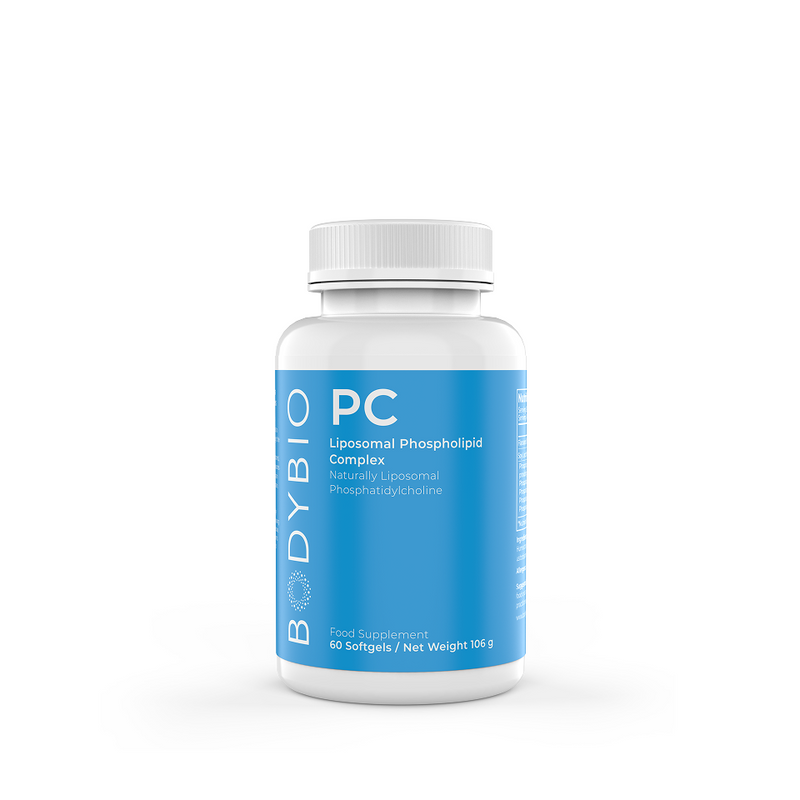How Diet, Nutrition, & Environmental Toxins Influence Male Fertility
Key Takeaways:
Key Points:
- Optimized male fertility involves producing healthy sperm in the right quantity and quality to successfully fertilize a woman's egg, with key factors including sperm count, motility, and morphology (sperm form and structure).
- Healthy sperm are essential for fertilization, but other factors such as male hormonal balance, particularly testosterone levels, and genetic elements also play significant roles.
- Age, overall health, and lifestyle choices, like diet and exposure to toxins, can significantly impact male fertility, along with underlying medical conditions.
Fertility is often thought of as more of a women’s health issue, but men’s fertility is just as important to consider pre-conception. In today’s world, there are significant environmental factors that couples, including men, have to consider when seeking to start a family. As science has evolved and we’ve learned more about male fertility, research has shown that diet, nutrition, and environment all play a key role in male reproductive health.
Table of Contents:
- Common Causes of Male Infertility
- The Impact of Diet on Male Fertility and Sperm Health
- Key Supplements for Male Fertility
- Environmental Factors and The Impact of Toxins on Male Fertility
- Practical Tips for Improving Male Fertility
Understanding Male Fertility
Male fertility refers to a man's biological ability to father a child. This involves producing healthy sperm in the right quantity and quality, and the sperm must be healthy enough to successfully fertilize a woman's egg. Factors like sperm count, motility (movement), and morphology (shape) are critical indicators of male fertility.
Healthy sperm are the most important part of fertilization, but other elements also play a role. Hormonal balance, particularly testosterone levels, is essential for sperm production and overall reproductive health. Genetic factors can also impact fertility — so can lifestyle choices such as diet, exercise, and exposure to environmental toxins.
Age is another important consideration — sperm quality and quantity can decline with age. Overall health and the presence of underlying medical conditions, such as diabetes or infections, can significantly affect male fertility as well.
Common Causes of Male Infertility
Male infertility can stem from various causes, including age, genetic factors, hormonal imbalances, and lifestyle choices. Genetic issues may involve chromosomal abnormalities or mutations that affect sperm production or function, including problems in the hypothalamus or the pituitary gland, testicular disease, and sperm transport disorders. Hormonal imbalances, such as low testosterone levels, can interfere with sperm production and quality.
Lifestyle choices play a significant role. Smoking, excessive alcohol consumption, and drug use can damage sperm and reduce fertility. Poor diet, lack of exercise, and obesity are also associated with lower sperm quality and hormonal imbalances. Environmental factors, such as exposure to toxins, pesticides, and heavy metals, can further impact sperm production and function. Awareness of these common causes allows men to make proactive changes, seek medical advice, and reduce exposure to harmful elements, thereby improving fertility.
What age does male fertility decline?
Male fertility generally starts to decline around age 40 to 45. As men age, sperm quality, including motility, morphology, and concentration, tends to decrease, making it more challenging to fertilize an egg. The decline can be up to 23% annually starting at age 39.
How do microplastics affect male fertility?
Microplastics negatively impact male fertility by causing oxidative stress and inflammation in the reproductive system. Studies have shown that exposure to microplastics can lead to decreased sperm quality, including reduced sperm count and motility. Additionally, microplastics can disrupt hormone levels, further affecting fertility.
The Impact of Diet on Male Fertility and Sperm Health
Diet plays a significant role in overall health and can directly impact sperm quality. A balanced diet rich in essential nutrients is vital for maintaining optimal sperm health. Key nutrients like zinc, selenium, and omega-3 fatty acids support sperm production and motility, ensuring healthy sperm function. Including a variety of fruits, vegetables, whole grains, nuts and seeds, and animal proteins can help provide these essential nutrients. Additionally, supplements can also play a role in addressing any nutritional gaps and further supporting male fertility.
Foods to Avoid for Better Male Fertility
Certain foods can negatively impact male fertility by affecting sperm quality and overall reproductive health.
- Processed Foods: Processed foods often contain toxic fats, additives, and preservatives that can negatively impact sperm quality. Reducing intake of processed foods (and replacing them with whole foods) can improve overall reproductive health.
- Sugar and High-Fructose Corn Syrup: Excessive sugar intake can lead to insulin resistance and inflammation, which can harm sperm health. Reducing sugar consumption can benefit fertility.
- Alcohol: Alcohol can negatively impact sperm quality by reducing sperm count and motility and increasing the chances of abnormal sperm. Excessive drinking can also lead to hormonal imbalances, specifically lowering testosterone levels, which are vital for sperm production. Alcohol also affects the liver's ability to detoxify the body, leading to an accumulation of toxins that can further harm reproductive health.
Key Supplements for Male Fertility
- Zinc: Vital for sperm production and testosterone metabolism. As with many minerals, zinc is lacking in our food supply due to depleted soil, so supplementing may be essential for male fertility.
- Selenium: Acts as an antioxidant and protects sperm from oxidative damage.
- Omega-3 Fatty Acids: Improve sperm membrane fluidity and function. Fish oil supplements can be an excellent source of omega-3 fatty acids.
- Folate: Essential for DNA synthesis and repair, playing a crucial role in sperm quality. Folate (and the other B vitamins) is often recommended for pregnant women, but it’s important for men too!
- Vitamin B12: Important for sperm production and DNA synthesis.
- Coenzyme Q10 (CoQ10): An antioxidant that supports energy production in cells, including sperm, and can help improve sperm motility and overall quality.
- Vitamin C and E: Powerful antioxidants that protect sperm from oxidative stress — and enhance sperm count and motility.
- L-Carnitine: An amino acid that plays a role in energy production and is crucial for sperm motility.
- Vitamin D: Vitamin D deficiency has been linked to reduced sperm quality.
- Ashwagandha: This adaptogenic herb has been shown to increase testosterone levels, reduce stress, and improve overall well-being.
- Saw Palmetto: May help in maintaining healthy testosterone levels and support prostate health.
- Fenugreek: Known for its potential to boost testosterone levels and enhance libido.
Incorporating these supplements into your daily routine can significantly boost sperm health — especially when combined with a nutrient-rich diet. However, it's always advisable to consult with a healthcare provider before starting any new supplement regimen.
Environmental Factors and The Impact of Toxins on Male Fertility
Exposure to environmental toxins, such as microplastics, pesticides, heavy metals, and endocrine-disrupting chemicals, can harm sperm quality and reduce fertility. We can’t possibly list them all, but you can start here:
- Microplastics: Tiny plastic particles found in various consumer products and in the environment that are leaching into our bodies. They can disrupt hormonal balance and negatively affect sperm health. Reducing your plastic use and supporting your body’s detoxification systems can help your body get rid of microplastics.
- Chemical Exposure: This might not seem like a big problem for everyone, but they are truly everywhere. Chemicals like BPA (bisphenol A), phthalates, poly- and perfluoroalkyl substances (PFASs), and pesticides can be found in household products, personal care items, and industrial pollutants, which can interfere with hormonal balance and damage sperm. Reducing exposure to these chemicals can improve fertility.
Enhancing Male Fertility Through Detoxification
Detoxification is a natural process used by the body to eliminate harmful substances. Supporting your body's detox pathways can improve fertility and overall health. By reducing exposure to toxins and enhancing the body's ability to detoxify, you can help remove substances that negatively impact sperm quality and reproductive health.
Phospholipids
Phospholipids are the building blocks of our cell membranes and the protectors of our cells. By supporting the cell membrane, we are supporting all the mechanisms that remove unwanted toxins in the cell. Phospholipids have a unique ability to wrap around fat-soluble toxins and remove them from the cell, which is essential for addressing the toxins that impact fertility. PC is also the main component of bile, which binds toxins in the GI tract and prevents them from being reabsorbed in the body.
Infrared Sauna Use
Infrared saunas are a powerful tool for detoxification and overall health. Unlike traditional saunas, which heat the air around you, infrared saunas use infrared light to penetrate your body and promote sweating from deep within. This helps eliminate toxins more efficiently, including heavy metals and environmental pollutants that can negatively impact sperm quality. Regular use of infrared saunas can improve circulation, reduce stress levels, and support overall well-being — all of which contribute to better reproductive health.
Supporting Liver Health
The liver is a vital organ for detoxification, processing toxins, and ensuring they are safely eliminated from the body. Supporting liver health is crucial for maintaining optimal fertility. Incorporating liver-supportive foods like garlic, turmeric, and leafy greens into your diet can enhance liver function and its detoxifying capabilities. These foods contain compounds that help activate liver enzymes responsible for breaking down and removing toxins.
Gut Health
The gut microbiome, which consists of trillions of beneficial bacteria, plays a role in nutrient absorption and reducing inflammation. Maintaining a balanced gut microbiome can positively impact sperm health by improving the absorption of essential nutrients needed for sperm production. Incorporating probiotics and prebiotics into your diet can support a healthy gut microbiome.
By integrating these practices into your regular routine, you can create a healthier environment for sperm production and improve your overall reproductive health.
Practical Tips for Improving Male Fertility
Improving male fertility involves taking proactive steps to support your reproductive health. There are several practical strategies you can implement, including making healthier lifestyle choices, managing stress, and incorporating specific dietary changes.
- Dietary Changes: Making dietary changes, such as increasing intake of nutrient-rich foods and reducing processed food consumption, can significantly improve male fertility.
- Lifestyle Modifications: Incorporating healthy lifestyle practices like regular exercise, stress management, and avoiding harmful substances, can enhance reproductive health.
- Regular Health Check-Ups and Labs: Check-ups and regular blood work help identify potential issues and ensure that any underlying health conditions are managed effectively.
Enhancing Male Fertility Through Diet, Nutrition, and Environmental Awareness
Taking proactive steps to support male fertility through diet, nutrition, and environmental awareness can make a significant difference. By incorporating nutrient-rich foods, essential vitamins, and effective detoxification strategies, men can improve their reproductive health.
Reducing exposure to harmful toxins and maintaining a balanced lifestyle further enhances fertility. These efforts collectively contribute to creating a healthier environment for sperm production and increasing the chances of conception. Making informed choices about diet, supplements, and lifestyle practices can lead to better fertility outcomes and overall well-being.
BodyBio PC is a phospholipid complex designed to support your cellular health and facilitate detox at the cellular level — two essential pathways to improve fertility and your overall health.
Ahmadi S, Bashiri R, Ghadiri-Anari A, Nadjarzadeh A. Antioxidant supplements and semen parameters: An evidence based review. Int J Reprod Biomed. 2016 Dec;14(12):729-736. https://doi.org/10.29252/ijrm.14.12.729
Cardoso, B. R., Fratezzi, I., & Kellow, N. J. (2024). Nut Consumption and Fertility: a Systematic Review and Meta-Analysis. Advances in nutrition (Bethesda, Md.), 15(1), 100153. https://doi.org/10.1016/j.advnut.2023.100153
Cito G, Cocci A, Micelli E, et al. Vitamin d and male fertility: an updated review. World J Mens Health. 2020;38(2):164-177. https://doi.org/10.5534/wjmh.190057
Greither, T., Behre, H. M., & Herlyn, H. (2022). Genome-Wide Association Screening Determines Peripheral Players in Male Fertility Maintenance. International journal of molecular sciences, 24(1), 524. https://doi.org/10.3390/ijms24010524
Ferramosca, A., & Zara, V. (2022). Diet and Male Fertility: The Impact of Nutrients and Antioxidants on Sperm Energetic Metabolism. International journal of molecular sciences, 23(5), 2542. https://doi.org/10.3390/ijms23052542
Łakoma, K., Kukharuk, O., & Śliż, D. (2023). The Influence of Metabolic Factors and Diet on Fertility. Nutrients, 15(5), 1180. https://doi.org/10.3390/nu15051180
Maciejewski, R., Radzikowska-Büchner, E., Flieger, W., Kulczycka, K., Baj, J., Forma, A., & Flieger, J. (2022). An Overview of Essential Microelements and Common Metallic Nanoparticles and Their Effects on Male Fertility. International journal of environmental research and public health, 19(17), 11066. https://doi.org/10.3390/ijerph191711066
Pecora, G., Sciarra, F., Gangitano, E., & Venneri, M. A. (2023). How Food Choices Impact on Male Fertility. Current nutrition reports, 12(4), 864–876. https://doi.org/10.1007/s13668-023-00503-x
Rodprasert, W., Toppari, J., & Virtanen, H. E. (2023). Environmental toxicants and male fertility. Best practice & research. Clinical obstetrics & gynaecology, 86, 102298. https://doi.org/10.1016/j.bpobgyn.2022.102298
Sansone, A., Di Dato, C., de Angelis, C., Menafra, D., Pozza, C., Pivonello, R., Isidori, A., & Gianfrilli, D. (2018). Smoke, alcohol and drug addiction and male fertility. Reproductive biology and endocrinology : RB&E, 16(1), 3. https://doi.org/10.1186/s12958-018-0320-7
Sciorio, R., Tramontano, L., Adel, M., & Fleming, S. (2024). Decrease in Sperm Parameters in the 21st Century: Obesity, Lifestyle, or Environmental Factors? An Updated Narrative Review. Journal of personalized medicine, 14(2), 198. https://doi.org/10.3390/jpm14020198
Skakkebaek, N. E., Rajpert-De Meyts, E., Buck Louis, G. M., Toppari, J., Andersson, A. M., Eisenberg, M. L., Jensen, T. K., Jørgensen, N., Swan, S. H., Sapra, K. J., Ziebe, S., Priskorn, L., & Juul, A. (2016). Male Reproductive Disorders and Fertility Trends: Influences of Environment and Genetic Susceptibility. Physiological reviews, 96(1), 55–97. https://doi.org/10.1152/physrev.00017.2015
Smith SJ, Lopresti AL, Teo SYM, Fairchild TJ. Examining the effects of herbs on testosterone concentrations in men: a systematic review. Adv Nutr. 2021;12(3):744-765. https://doi.org/10.1093/advances/nmaa134
Sousa, A. C. A., Alves, M. G., Oliveira, P. F., Silva, B. M., & Rato, L. (2022). Male Infertility in the XXI Century: Are Obesogens to Blame?. International journal of molecular sciences, 23(6), 3046. https://doi.org/10.3390/ijms23063046







